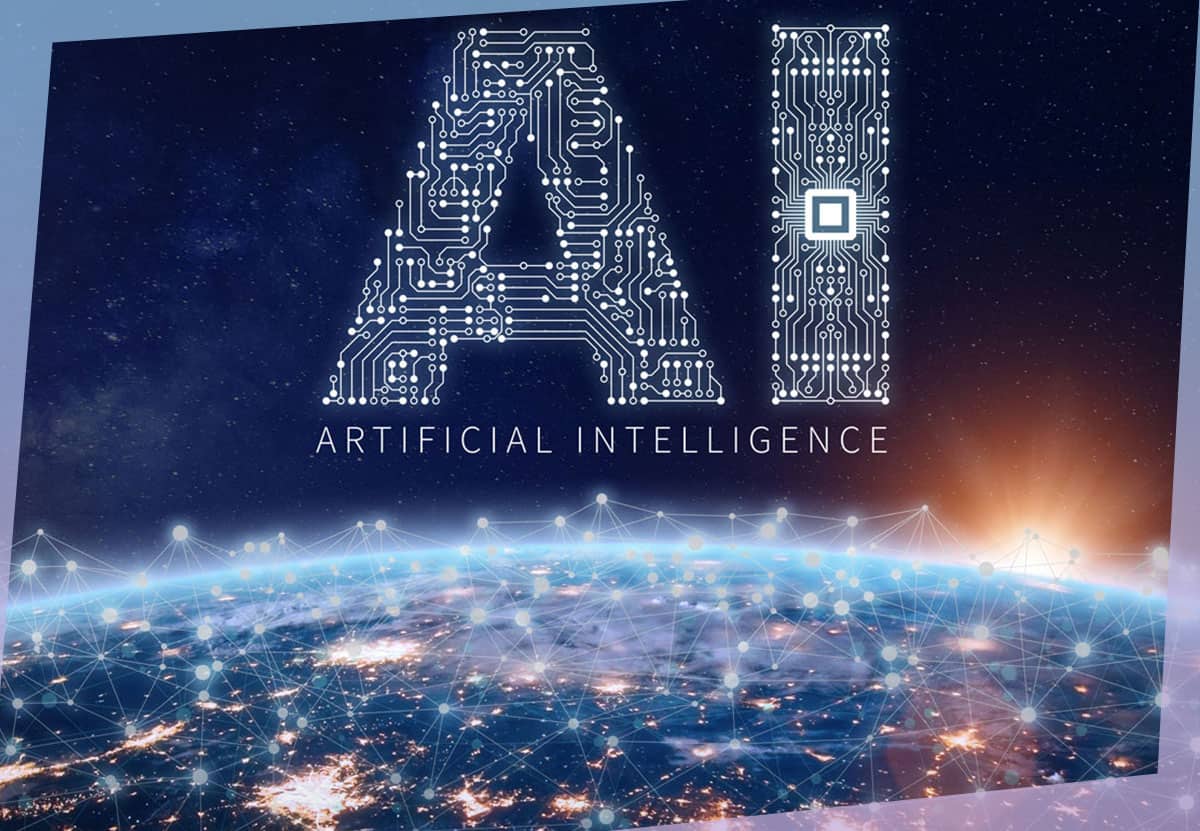Computer technology moves at a blazing pace. Blink once and the world of tech steps forward a light year. Blink twice and suddenly what was once cutting edge is now commonplace. No day is the same in the tech world as the standards, methods, and products constantly change and improve.
We’ve written previously about how valuable human data is to the tech industry. Whenever you spend time on your internet-connected devices, virtual scouts track and collect your data to build human profiles. This data provides a wealth of information to companies, data brokers, and even potential cyber criminals, which is one of the reasons it’s so important to stay on top of the latest tech threats.
Artificial intelligence (AI) is a tech-industry term that’s been thrown around more and more when discussing cybersecurity. Depending on who you talk to, this futuristic-sounding technology is either the solution to every problem or the biggest threat to you and your business’s digital well-being. The best response to emerging technologies like AI is education, so let’s explore this concept and empower you to decide what to implement in your corporate and personal lives.
What Is AI, Anyway?
Artificial intelligence, also referred to as machine intelligence or machine learning, is a branch of computer science that pushes technology to learn and solve problems from sets of data. It’s a big part of what makes “smart” technology so smart. Systems that use AI analyze data patterns to develop algorithms that make programs work more efficiently. This “intelligence” mimics the human brain’s ability to learn and apply information to new problems.
These algorithms power the technology we use every day: inbox filters, social media feeds, predictive text, online shopping recommendations, and virtual assistants like Alexa and Siri. If you’ve used Google Home or iMessage today, you’ve already experienced AI technology. For example, iMessage’s predictive text algorithm analyzes the patterns in your text messages and uses it to suggest words and phrases as you type.
Artificial intelligence has so many different uses, and its breadth allows more than just the information technology field to benefit. Manufacturing companies, financial analysts, and even biologists use AI to process data and identify trends that would take human minds years of constant dissection to solve. Marketing companies and students use chatbots like ChatGPT to generate content.
Is AI Dangerous?
AI has gained a bit of a negative reputation from sci-fi books and movies, often portrayed as a menacing force of infinite knowledge that aims to dominate humanity. Projects like Sophia the AI robot give a pretty face to this mimicry of human intelligence. However, these real and fictional depictions are far from the most common ways AI is applied. Real-life AI technology is, for the most part, innocuous without human motives behind it.
Pop culture has fun anthromorphizing AI, but in reality, AI machines are limited to the data sets they’re built to address.
Credible concerns about AI are rooted in its human weaknesses. The goal of AI research and development is to mimic human reasoning so problems can be solved faster than humans could physically achieve. Like any technology, AI requires real people to design, program, and evaluate it.
Take ChatGPT, Snapchat’s “My AI,” and other chatbots of recent release. The natural language processing in such software can write emails, essays, and code. It can assist users in immediately applicable ways. It can hold human-like conversations. With that essence of humanity comes a hint of danger. Advice and suggestions generated by AI have inherent risk. Information produced by these chatbots is not always correct, and making choices and decisions based off of them can be dangerous.
Self-driving cars have been in the news for the last few years, and despite several pedestrian and driver fatalities AI research preserves the dream of autonomous transportation. Imagery algorithms for drone technology and surveillance software (like the facial recognition you might use to unlock your phone every day) power these autonomous processes that read and react to data sets. But even with a human driver in the front seat, self-driving cars can’t realistically predict events they haven’t been programmed to respond to.
Imagery technology tends to make people apprehensive about their privacy as well as their safety on the roads. Beyond scanning your tagged Facebook photos or unlocking your iPhone, facial recognition software has the potential to elicit a global response. Government and immigration agencies are already using AI technology to implement policies, regardless of negative implications on citizens’ privacy. And the phenomenon of “deep fakes” has revealed a latent anxiety about taking online content of world leaders at face value. Regulation is still underway for many issues concerning AI, such as content rights and unauthorized use of the raw data AI learns from, leaving researchers and corporate funding to run rampant with a technology that’s growing faster than protective agencies can keep up with.
AI systems are also susceptible to human biases, even if we don’t deliberately program them that way. Without actual human reasoning, perfect AI function takes a lot of trial and error. This is why spam email sometimes ends up in your inbox while an account verification email gets sent to the junk folder. AI needs constant human refinement. Pop culture has fun anthromorphizing AI, but in reality, AI machines are limited to the data sets they’re built to address.
What Should I Know About AI Technology?
As AI technology continues to develop, it provides exciting opportunities to strengthen cybersecurity. Managed service providers like Anderson Technologies integrate new AI-powered software into existing practices. AI technology can chew through mountains of seemingly unrelated data and uncover previously hidden relationships and patterns, allowing MSPs to bring to bear more robust solutions for their clients. For example, to address a universal threat vector, adding an intelligent email-filtering software like Avanan serves as a very strong first layer of defense against malicious emails.
Read more about cybersecurity!
As a business owner, it’s wise to stay on top of upcoming technologies, whether or not you decide to implement them in your daily work. AI enables more powerful systems—but the same applies to cyber criminals. Intelligent machines can learn which users and programs are susceptible to certain threats, and they’re also very skilled when working with patchy data sets. A human hacker might overlook patterns that an AI-powered program is designed to seek out and exploit.
Machines have strengths in areas where humans are weak, and vice versa. As AI continues to trickle into more of our everyday experience, concerns about privacy and regulation become more tangible. While AI itself has no virtue signal, the people directing it prove it has frightening potential. But, just like jokes from Sophia the robot, with cautious exploration AI seems set to do more good than harm.
Do you have questions about the application of AI for your business? Contact Anderson Technologies today and stay tuned for more articles discussing the emerging technology of artificial intelligence.




